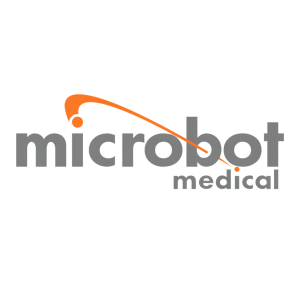Microbot Medical Enrolled the First Patient in its Pivotal Human Clinical Trial
Rhea-AI Summary
Microbot Medical (Nasdaq: MBOT) announced the successful enrollment of the first patient in its pivotal human clinical trial for the LIBERTY® Endovascular Robotic Surgical System. The procedure was conducted at Brigham and Women’s Hospital (BWH) in Boston, led by Dr. Dmitry Rabkin. This trial, part of an Investigational Device Exemption (IDE), aims to gather data to support the future FDA submission and commercialization of LIBERTY®. Juan Diaz-Cartelle, MD, Chief Medical Officer, highlighted this milestone as important for bringing LIBERTY® to U.S. physicians and expressed optimism for further patient enrollments.
Positive
- Enrollment of the first patient in the pivotal human clinical trial for LIBERTY®.
- Procedure successfully conducted at Brigham and Women’s Hospital, Boston.
- Trial results expected to support the FDA submission and subsequent commercialization.
Negative
- None reported in the press release.
News Market Reaction 1 Alert
On the day this news was published, MBOT gained 1.41%, reflecting a mild positive market reaction.
Data tracked by StockTitan Argus on the day of publication.
The first clinical case was performed at Brigham and Women’s Hospital
The clinical trial is expected to support the future submission to the FDA for the commercialization of the LIBERTY® Endovascular Robotic Surgical System
BRAINTREE, Mass., July 08, 2024 (GLOBE NEWSWIRE) -- Microbot Medical Inc. (Nasdaq: MBOT) today announced the completion of the first procedure in a patient utilizing its LIBERTY® Endovascular Robotic Surgical System. The procedure took place at Brigham and Women’s Hospital (BWH), a leading academic medical center located in Boston, Massachusetts, as part of the Company’s pivotal human clinical trial.
The clinical trial at BWH is led by Dr. Dmitry Rabkin, MD, PhD, Assistant Chief, Division of Angiography & Interventional Radiology, who also performed this first human case. The trial is part of the Investigational Device Exemption (“IDE”) for LIBERTY®, and the Company expects its results will support the future submission to the FDA and subsequent commercialization.
“Enrolling the first patient in our pivotal human clinical trial is a significant milestone for the Company, and an important step on our journey to bring LIBERTY® to U.S. physicians,” commented Juan Diaz-Cartelle, MD, Chief Medical Officer of Microbot Medical. “We are very pleased with the rapid pace of site activation, and I’m looking forward to enrolling additional patients in the near future.”
About Microbot Medical
Microbot Medical Inc. (NASDAQ: MBOT) is a clinical- stage medical device company that specializes in transformational micro-robotic technologies, with the goals of improving clinical outcomes for patients and increasing accessibility through the natural and artificial lumens within the human body.
The Investigational LIBERTY® Endovascular Robotic Surgical System aims to improve the way surgical robotics are being used in endovascular procedures today, by eliminating the need for large, cumbersome, and expensive capital equipment, while reducing radiation exposure and physician strain. The Company believes the LIBERTY® Endovascular Robotic Surgical System’s remote operation has the potential to be the first system to democratize endovascular interventional procedures.
Further information about Microbot Medical is available at http://www.microbotmedical.com.
Safe Harbor
Statements to future financial and/or operating results, future growth in research, technology, clinical development, and potential opportunities for Microbot Medical Inc. and its subsidiaries, along with other statements about the future expectations, beliefs, goals, plans, or prospects expressed by management, constitute forward-looking statements within the meaning of the Private Securities Litigation Reform Act of 1995 and the Federal securities laws. Any statements that are not historical fact (including, but not limited to statements that contain words such as “will,” “believes,” “plans,” “anticipates,” “expects” and “estimates”) should also be considered to be forward-looking statements. Forward-looking statements involve risks and uncertainties, including, without limitation, market conditions, risks inherent in the development and/or commercialization of the LIBERTY® Endovascular Robotic Surgical System, the outcome of its studies to evaluate the LIBERTY® Endovascular Robotic Surgical System, uncertainty in the results of pre-clinical and clinical trials or regulatory pathways and regulatory approvals, including whether the Company’s pivotal study in humans is successful, any failure or inability to recruit physicians and clinicians to serve as primary investigators to conduct regulatory studies which could adversely affect or delay such studies, disruptions resulting from new and ongoing hostilities between Israel and the Palestinians and other neighboring countries, any lingering uncertainty resulting from the COVID-19 pandemic, need and ability to obtain future capital, and maintenance of intellectual property rights. Additional information on risks facing Microbot Medical can be found under the heading “Risk Factors” in Microbot Medical’s periodic reports filed with the Securities and Exchange Commission (SEC), which are available on the SEC’s web site at www.sec.gov. Microbot Medical disclaims any intent or obligation to update these forward-looking statements, except as required by law.
Investor Contact:
Michal Efraty







